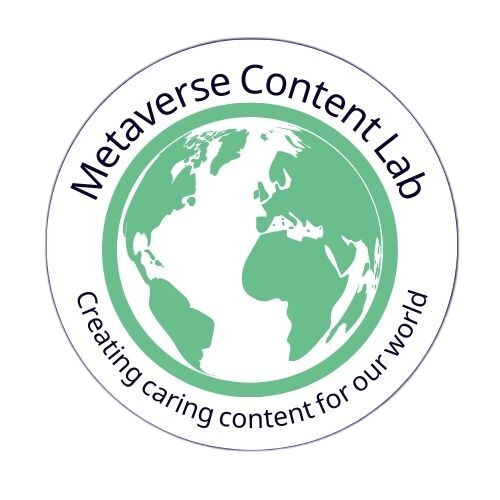Portfolio
The nature of our client work is often confidential, meaning that most of our content writing and copywriting projects can't be shared publicly.
Here you'll find a small taste of some of the work we have produced. If you'd like to learn more about the content niches we cover and what we can do for you, get in touch.

Why Is Colleen Hoover Trending Everywhere, And Why Should You Care?
Why Is Colleen Hoover Trending Everywhere, And Why Should You Care?

Lifestyle Collective, December 22, 2023
By Brazen Edwards
Colleen Hoover is a New York Times bestselling author known for her emotionally charged romance novels, which have garnered a wide readership and numerous accolades. However, like many figures in the public eye, she has faced controversy and criticism, leading to a portion of readers expressing disdain or frustration towards her work due to concerns about the way her books handle themes of toxic relationships and domestic abuse.
While some appreciate her approach in shedding light on these topics, others criticise her portrayal of such themes, feeling they may be overly dramatic or not handled with enough sensitivity.
The Controversy
Among Hoover’s notable works, “It Ends With Us”, soon to be released as a movie, stands as a magnet for controversy owing to its exploration of domestic violence. The story orbits around Lily Bloom, navigating the labyrinthine complexities of her relationship with Ryle Kincaid, a charismatic neurosurgeon.
While the novel elicited both applause and criticism, it became a focal point for discussions on the portrayal of domestic violence and whether it romanticises or normalises toxic behaviour. Some readers express that the novel falls short in depicting the gravity and enduring impact of domestic violence, particularly in the resolution of the central relationship, raising concerns about the underlying messages conveyed.
Although it presents a compelling narrative that intricately weaves love, resilience, and the harsh realities of abusive relationships, there was an unapologetic acceptance and a redeeming character arc that wasn’t grounded in reality.
Advertisement
Beyond the confines of a singular book, Hoover’s body of work faces broad accusations of embracing unhealthy relationships, inadvertently propagating the notion that possessiveness and control constitute romantic attributes. This characterisation might shape perceptions among impressionable readers, especially young audiences, by presenting toxic dynamics as acceptable or desirable.
The Widespread Impact
The conversations spurred by Hoover’s novels traverse literary realms and echo across social media, embodying a spectrum of opinions. While some voices express disappointment over what they perceive as problematic representations, others rally to defend Hoover’s intentions, citing her endeavour to unfurl the intricate tapestry of human relationships, even if it involves grappling with uncomfortable realities.
Regardless of your opinion, the controversy surrounding her novels sparks essential dialogues about responsible storytelling. Critics emphatically stress the need for authors to navigate sensitive subjects like abuse with nuance and authenticity, advocating for narratives that neither romanticise nor trivialise these weighty issues. There’s an urgent call to spotlight the repercussions of toxic relationships while amplifying portrayals of healthy dynamics underscored by robust boundaries and mutual consent.
She unarguably captivates a vast readership, and the ongoing debates surrounding her work thrust into the limelight the necessity for readers to engage critically with literature. It beckons readers to scrutinise narratives, recognising their strengths and inherent flaws. These discussions spotlight the pivotal role authors play in presenting multifaceted and sensitive themes within the realm of fiction.
The Author’s Response
In response to the mixed reception, Hoover has openly addressed the intention behind her narratives and acknowledges the fine line between depicting the realities of abuse and inadvertently romanticising it.
Through her characters’ journeys, she aims to empower readers and highlight the importance of recognising and breaking free from abusive cycles. She claims her novels are inspired by actual events in her family life. She admits there are valid concerns but hopes her readers appreciate her storytelling style. She believes that the contentious themes in her books prompt essential discussions about relationships, boundaries, and consent.
Unfortunately, her response still seems remarkably tone-deaf when there was a planned Adult Colouring Book about her most contentious novel, which was only pulled because of the recent backlash.
While some readers find solace in the raw and honest portrayal of these themes, others criticise the potential implications of normalising this behaviour in relationships. The romanticised depiction of trauma in discussions can not only be triggering but also detrimental to readers who have lived through such experiences.
While many adults grapple with post-traumatic stress disorder stemming from past traumas, a significant number lack access to adequate treatment due to financial constraints, limited services, or societal stigma. Even for those who do receive treatment, their recovery can suffer setbacks when books or movies glorify symptoms such as codependency, control issues, and a disregard for healthy boundaries.
Essentially, this debate underscores the critical need for a balanced narrative approach when addressing complex subjects like domestic abuse, ensuring that stories don’t glorify or diminish the gravity of toxic dynamics but instead offer insights into healthier relationship dynamics. It is possible to encapsulate the intricate layers of human emotions without compromising on the responsibility towards their audience.
So, while romance novels aren’t necessarily the touchstone for real life, as readers, we must engage critically with literature and recognise both the merits and potential shortcomings of the stories we consume.
In the comments section, tell us if you have read any of her books, how you feel about them, and if you will watch the movie.

Talk to us
Drop us a line if you have any questions or want to enquire about our content marketing & SEO content writing services! We'll be happy to chat and explore ways to help elevate your brand.
© Copyright 2023 Metaverse Content Lab

